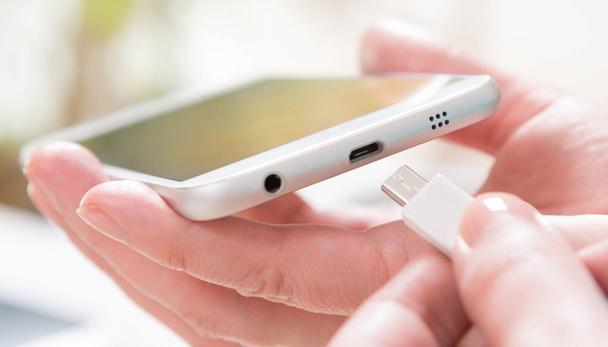Battery short phone, charger at home and none with a compatible cable.An image for many terrible and often representation of an event that actually occurred for many.For a long time there has been talk of the possibility of introducing universal charging, and perhaps it could be the right time.
In the last hours, the EU has finally found the right way, with all due respect to those who still oppose this decidedly radical change.It doesn't matter if the brand of your smartphone will be Apple, Samsung, Xiaomi or another: any charger must be suitable for the device to be recharged.
It will not be something immediate, however, even if the EU plans will be followed literally and without postponements we talk about waiting until 2024. Better late than ever?It depends, because there is no shortage of discordant voices and that oppose the universal charger.
Universal charger: expected, but not by everyone
That the debate around the universal charger is on is known to most.However, the central node is often liquidated quickly without really making it clear what is behind this dissent.Let's say that the main antagonist of the provision is roughly Apple, that of its Lightning technology has made its own distinctive brand.Both intended as charging and as connectivity of the devices.
Also thanks to some measures undertaken by Europe in recent years, starting from 2009, on the contrary, Android devices would be 80% ready for change.This is because the EU seems intentioned, with a scheduled vote by September, to set the USB-C cable (currently the most common) as a single standard.However, some other standards are still at stake in addition to Lightining, for a total remaining share of 20%: in particular, the now past USB-A standards resists some devices.

Inevitable to think that for Cupertino, converting the iPhones to the USB-C standard would represent a considerable cost.This despite Apple is already forward on another front and, on his iPad Pro, has already implemented USB-C.The EU asked to provide (with the new devices) only the cables, leaving users free to use the old chargers, a practice already started by Cupertino since 2020. Another request from the European Union is to make the software for interoperable forquick charging, making the various accessories even more interchangeable.
However, his refusal would not be a mere commercial question, says Apple.The company founded by Steve Jobs claims that the measures represent a potential limit for technological innovation, imposing constraints such as to limit the future vision.Not only that, we would run the risk of generating a mountain of electronic waste and irritating consumers.
The EU vision from the Apple is rather different.The European Union convinced that the introduction of the Single charger will contribute to the contrary to reducing the volume of electronic waste (WEEE), to the benefit of the environment.
Unique charger coming in 2024?
As mentioned, it seems that for the actual change there will be 2024. The why it is soon explained.Although the go -ahead for the EU Law was granted by September, probably given the outcome of a previous non -legislative resolution on the topic (582 MEP in favor, 40 against and 37 abstentions), the provision would enter into force probably from January 1, 2022.
From here he will have to spend another year, until 2023, a period granted to the Member States for the transposition of the new legislation.A further 12 months should be agreed to companies so that they comply with the changes introduced.Without hitches final date early 2024.
